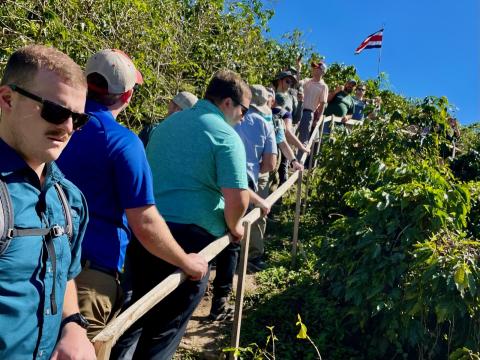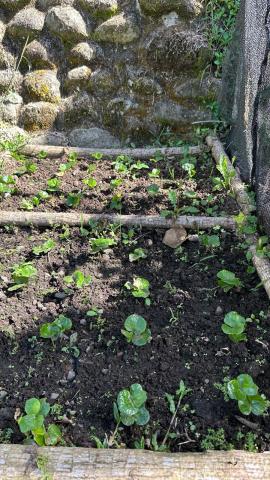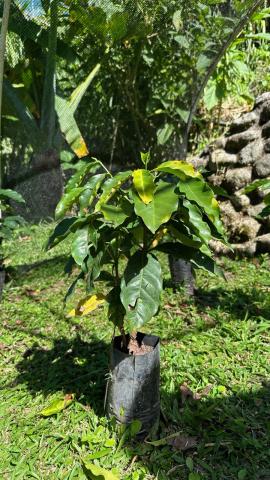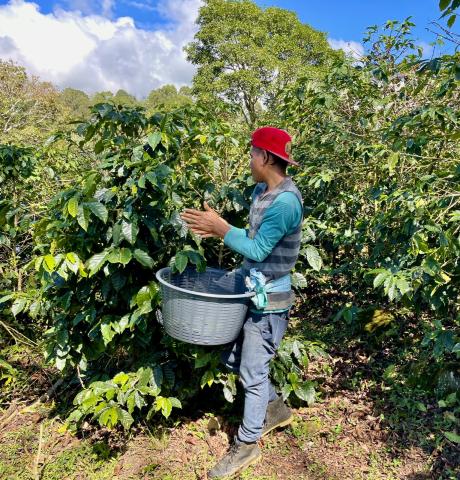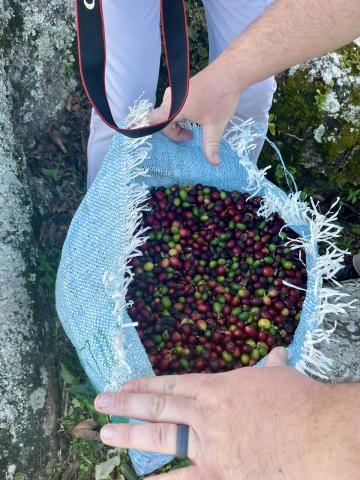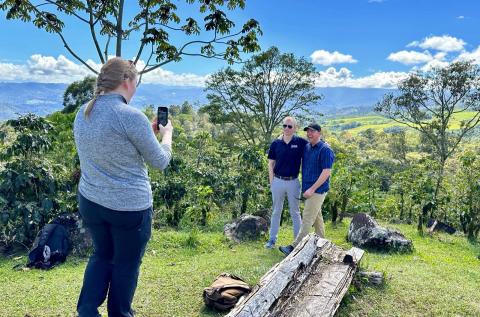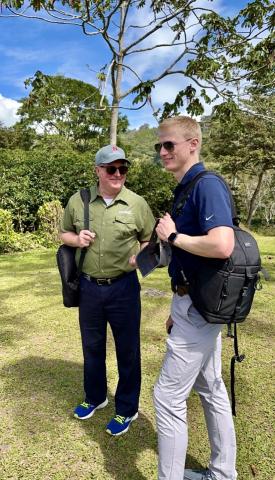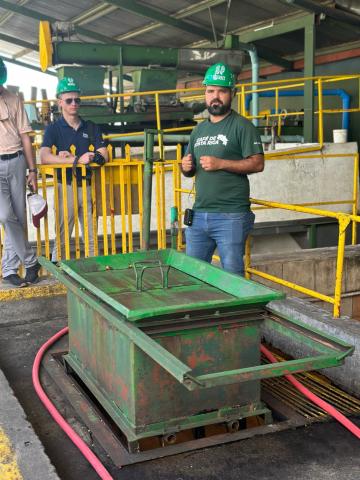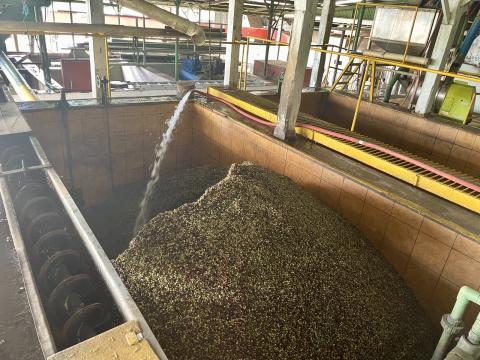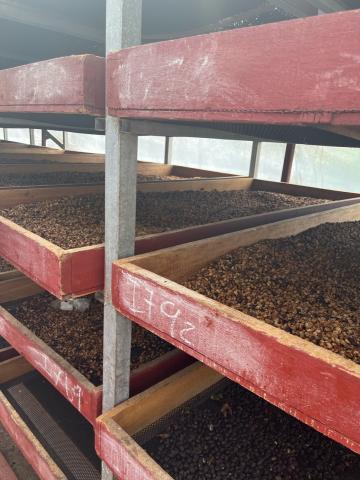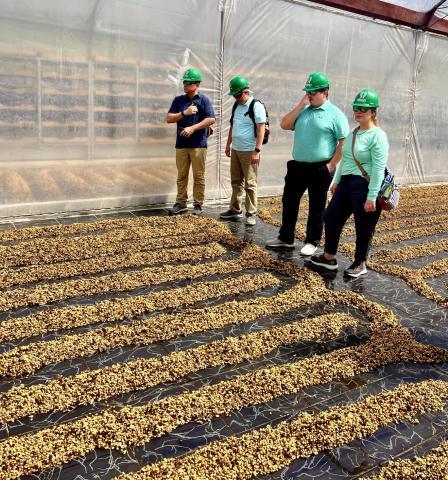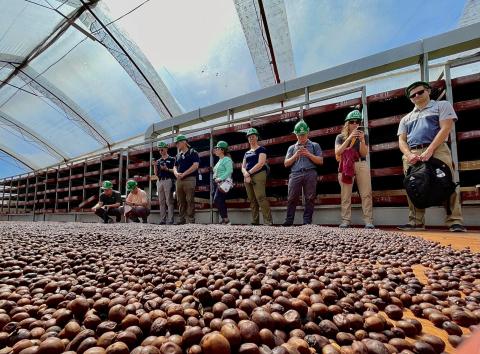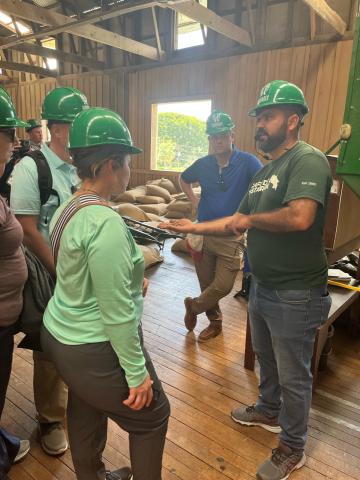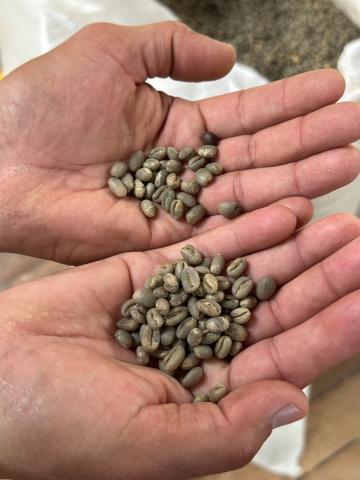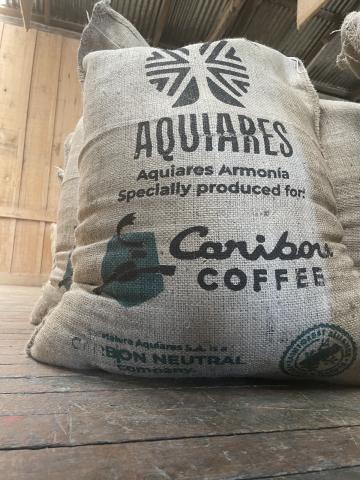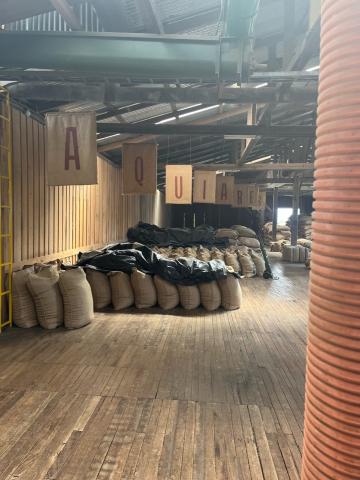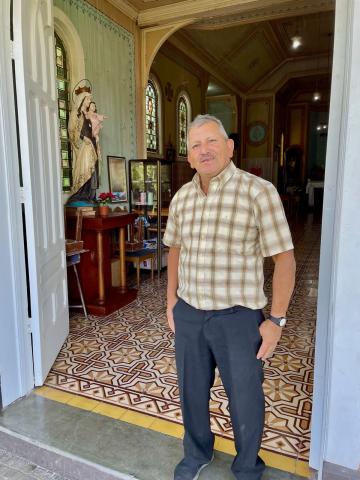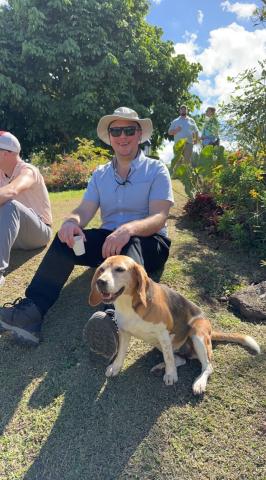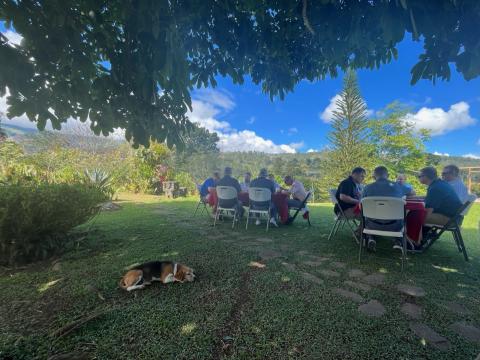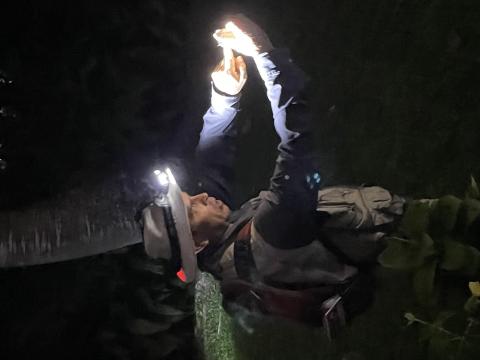In our final full day in Costa Rica, Nebraska LEAD 40 fellows visited a coffee farm and hiked to the bottom of a waterfall. Additionally, fellows revisited the CATIE Botanical Garden for a nighttime wildlife experience.
Video
Photos
The natural drying process is reserved for specialty beans that meet certain requirements. These cherries must be grown above 1200 meters. They are then floor dried in greenhouses to develop specific flavors and aromas. Pictures right to left: Stephanie Nelson, Cole Lewandowski, Steve Landon, Austin Benes.
Different processes produce fruit, citrus and other natural flavors enhanced once roasted. Some cherries may be fermented before dried. This concentrates and alters the flavor profile of the roasted bean. Pictured left to right: Andrew Bellamy, Mitch Oswald, Kurtis Harms, Dylan Haas, Stephanie Nelson, Tee Bush, Eric Coufal, Rachel Prosser, David Moss.
Anyone who has consumed a Costa Rican blend at a Caribou Coffee in the Midwest has likely tasted Aquiares beans. Certified growers here must grow only arabica coffee varieties to ensure maximum flavor and quality. Arabica coffee is well suited to the highland environments and conditions in Costa Rica’s coffee growing regions.
This is a culture that is both locally and globally community oriented. Much of the community revolves around their religious faith and a dedication to conservation. The plantation maintains a focus on sustainability practices that enables them to produce a negative carbon output and they are a Rainforest Alliance Partner. They are actively working with institutions like CATIE to enhance the technologies needed to grow coffee sustainably. Pictured is the caretaker of the local Roman Catholic parish.
